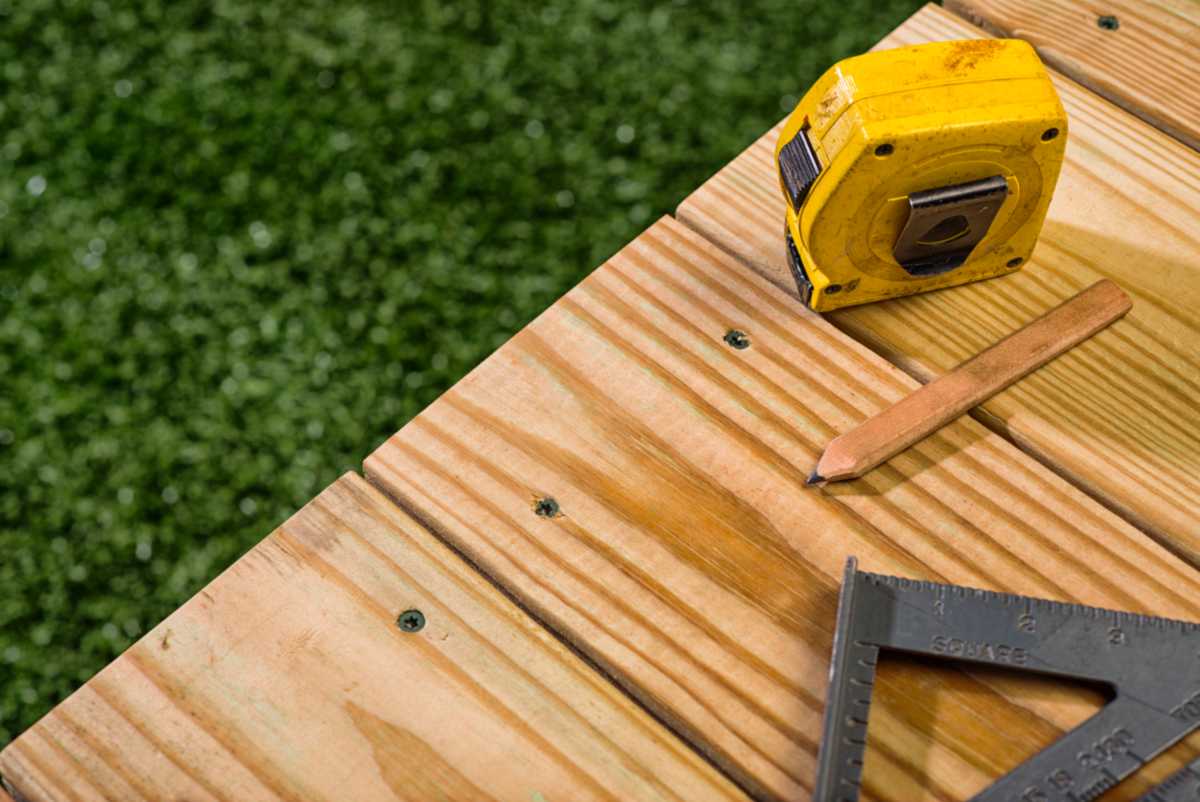Types of Deck Boards
Exploring Different Types of Decking Boards
Building an outdoor deck can create a comfortable place for barbecuing, relaxing, and enjoying time with friends and family. If you choose your deck materials and style carefully, you can even increase your home’s resale value. It’s important to choose outdoor deck boards that can withstand the weather and climate in your region. Some materials hold up better to extreme heat or cold, rain, hail, wind, and snow. Here is a look at the most common types of decking boards to consider when designing your dream deck.

Natural Wood Decking Boards
Natural wood is a traditional and classic option for building an outdoor deck. It is attractive, versatile, and can be easily customized using wood stain or paint. However, you should do your research before choosing a wood species, as some are more vulnerable to insects, rot, and weather damage. The best deck wood types to use in Oregon are:
- Pressure-treated Wood – Pressure-treated wood is affordable, durable, and long-lasting. It has been treated with specialized chemicals that increase its resistance to insects, decay, and rot. It requires more maintenance than other types of wood, however, and isn’t as durable as composite decking or PVC decking.
- Tropical Hardwood – Tropical hardwoods include mahogany, ipe, teak, cumaru, and sapele. These varieties are known for their durability and beauty and can withstand moisture and extreme weather. They are also dense and resistant to insects and decay. They are more expensive than other types of wood, however.
- Cedar – Cedar is a beautiful, durable wood that is naturally resistant to insects, rot, and decay. It is versatile and easy to work with but does require regular maintenance like cleaning, sealing, and staining.
- Redwood – Redwood, like cedar, is more resistant to decay. It is also stronger than other types of wood. It may be more expensive and require more care and maintenance, however.
Composite Deck Boards
Composite decking is a manufactured decking material. It is made from a combination of wood fibers and plastic. It looks like real wood but is more durable, resistant to pests and rot, and requires less care and maintenance. Composite deck boards are available in a wide range of designs that look like natural wood species and grains. Some of the biggest benefits of choosing composite decking materials in Oregon are:
- Longer lifespan and increased resistance to insects, rot, warping, splintering, and cracking
- Can withstand extreme heat and cold, rain, snow, wind, and hail
- Stays smooth and comfortable
- Can last up to 25-50 years with proper care
- Doesn’t require a lot of maintenance and will never need to be stained, sealed, sanded, or painted
- Can be cleaned easily with soap and water
- Highly versatile and aesthetically pleasing, with options for almost every aesthetic
- Eco-friendly and sustainable
- More slip-resistant than some species of wood
- Won’t fade or discolor
PVC or Vinyl Decking
PVC decking is a manufactured deck material that is made from polyvinyl chloride. Vinyl decking is made from a blend of synthetic materials, including PVC and plastic fibers. Both PVC and vinyl deck boards are affordable, low-maintenance, and durable. Both materials can withstand extreme temperatures and are resistant to insects, mold, mildew, and rot. They won’t splinter, discolor, or fade. Both options require occasional cleaning like sweeping or vacuuming, spraying down with a hose, or pressure washing. Vinyl decking is usually more affordable than PVC and doesn’t get as hot underfoot in the summer.
What to Consider When Choosing Your Deck Material
When you work with an experienced contractor to design and build your outdoor deck, they can help you evaluate the pros and cons of different deck materials. Some of the most important factors to consider when you’re choosing your deck board material are:
- Budget – If you’re working with a budget when designing your deck, choose a building material that is both affordable and durable. Choosing the least expensive deck material may end up costing you more over time in maintenance and repairs.
- Climate – The material you choose should be appropriate for the weather and climate in your area. Consider how it will stand up to sun and UV exposure, heat and cold, snow, rain, ice, wind, and hail.
- Maintenance – Think about how much time and money you want to commit to deck maintenance. Natural wood will require regular cleaning, sanding, staining or sealing, and painting.
- Aesthetics – Consider the architecture of your home, the building materials used for your home and other outdoor structures, and your personal taste and preferences. You want your deck to complement the overall aesthetics of your home.
- Durability – Choosing a more durable deck material means your deck will last longer. If you don’t want to have to worry about damage due to weather, insects, and water, choose a composite decking material or vinyl decking.
- Sustainability – If you are committed to sustainability, seek out an eco-friendly deck material. Recycled materials are more eco-friendly, and composite and vinyl decking are more sustainable.
- Future Plans for Your Home – Think about your future plans for your home. If you plan on selling your home in the next 10 years, choose materials that are durable and attractive so that your deck will be a selling point.
Call Now for a Consultation for Deck Installation
Dick’s Evergreen Fence and Deck has been the premier deck builder and contractor in the Portland, OR, area for more than 40 years. We specialize in high-quality deck materials like natural wood, cedar, composite decking, and vinyl decking. We can help you design the deck of your dreams, create the perfect outdoor living space, and add value to your home. We also offer deck railings, deck and patio cover installation, pergolas, fencing, and garden accents. Call now or contact us online to schedule a consultation for your dream deck.
